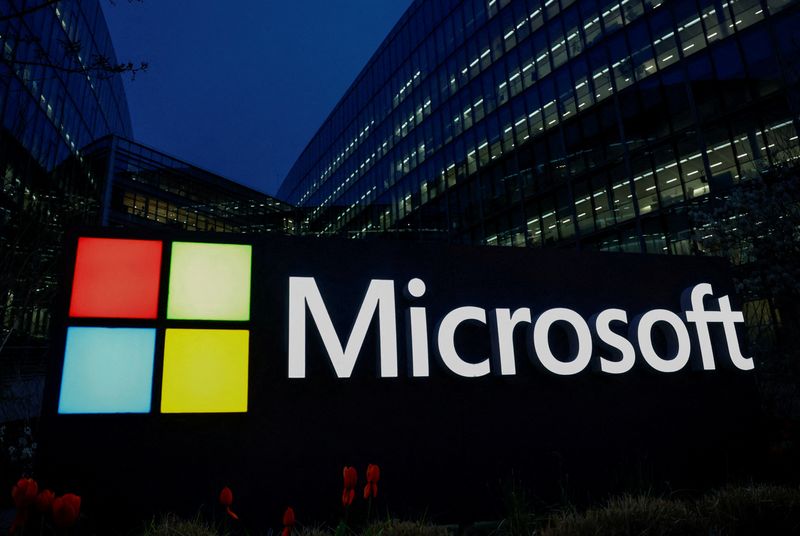By Stephen Nellis
(Reuters) - Microsoft (NASDAQ:MSFT) and Quantinuum on Wednesday said they have achieved a key step in making quantum computers a commercial reality by making them more reliable.
The move is the latest in a race to perfect quantum computing in which tech firms such as Microsoft, Alphabet (NASDAQ:GOOGL)'s Google and IBM (NYSE:IBM) are jostling with both rivals and nation states to create machines that take advantage of quantum mechanics to promise speeds far faster than conventional silicon-based computers. Those quantum machines could make feasible scientific calculations that would otherwise take millions of years with today's classical computers.
But the fundamental unit of quantum computers - called a "qubit" - is fast but finicky, producing data errors if the quantum computer is even slightly disturbed. To solve that problem, quantum researchers often build more physical qubits than needed and use error-correction techniques to yield a smaller number of reliable and useful qubits.
Microsoft and Quantinuum said they had made a breakthrough in that field. Microsoft applied an error-correction algorithm that it wrote to Quantinuum's physical qubits, yielding about four reliable qubits from 30 physical ones.
Jason Zander, Microsoft's executive vice president for strategic missions and technologies, said the company believes that is the best ratio of reliable qubits from a quantum chip that has ever been shown.
"We ran more than 14,000 individual experiments without a single error. That's up to 800 times better than anything on record," Zander told Reuters in an interview.
Microsoft said it plans to release the technology to its cloud computing customers in the coming months.

Quantum (NASDAQ:QMCO) researchers, both at Quantinuum and its rivals, often cite a figure of about 100 reliable qubits as the number needed to beat a conventional supercomputer. Neither Microsoft nor Quantinuum on Wednesday would say how many more years they will need to use the new technique to hit 100 reliable qubits.
But Ilyas Khan, the chief product officer of Quantinuum, said, "The current view is that we have lopped at least two years off that, if not more."